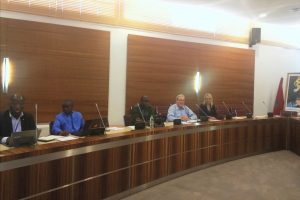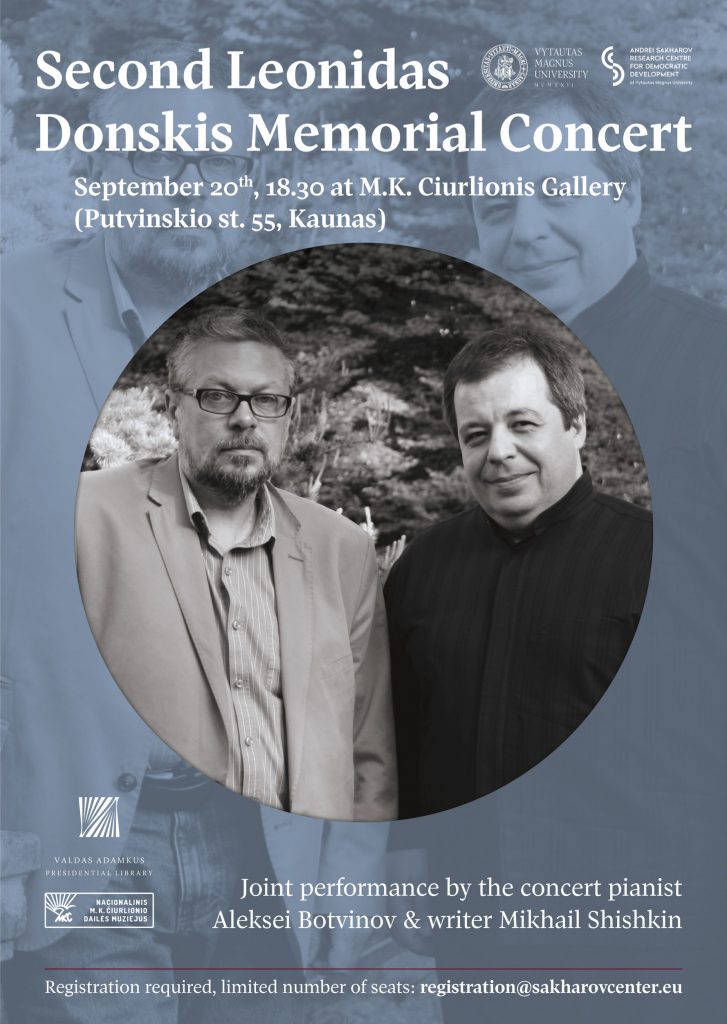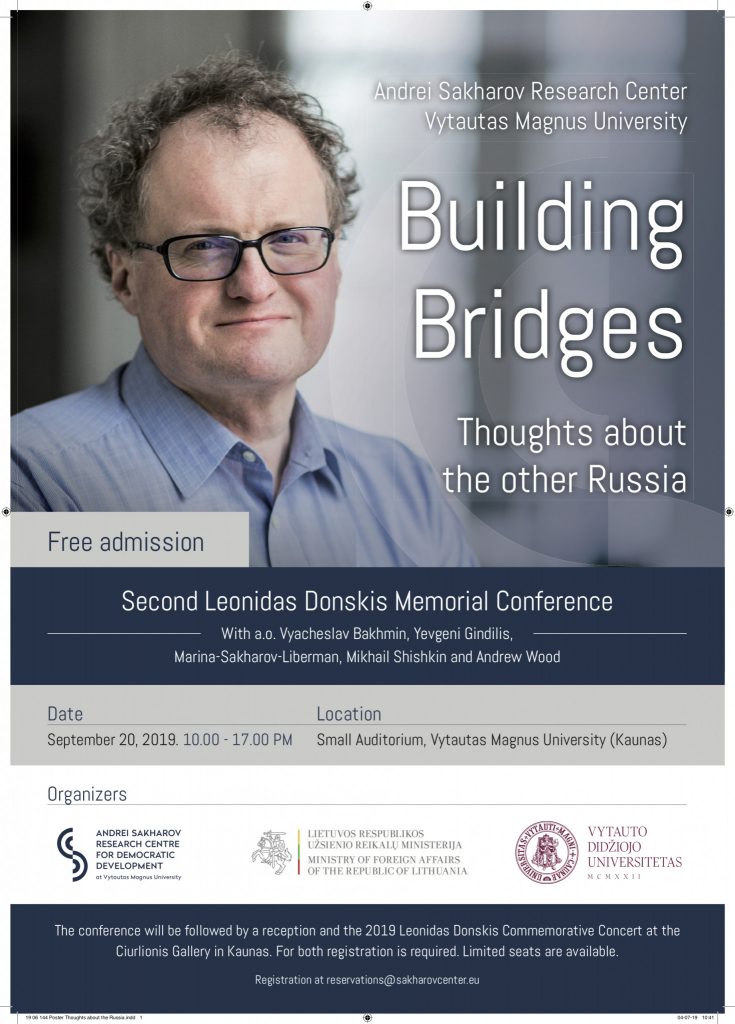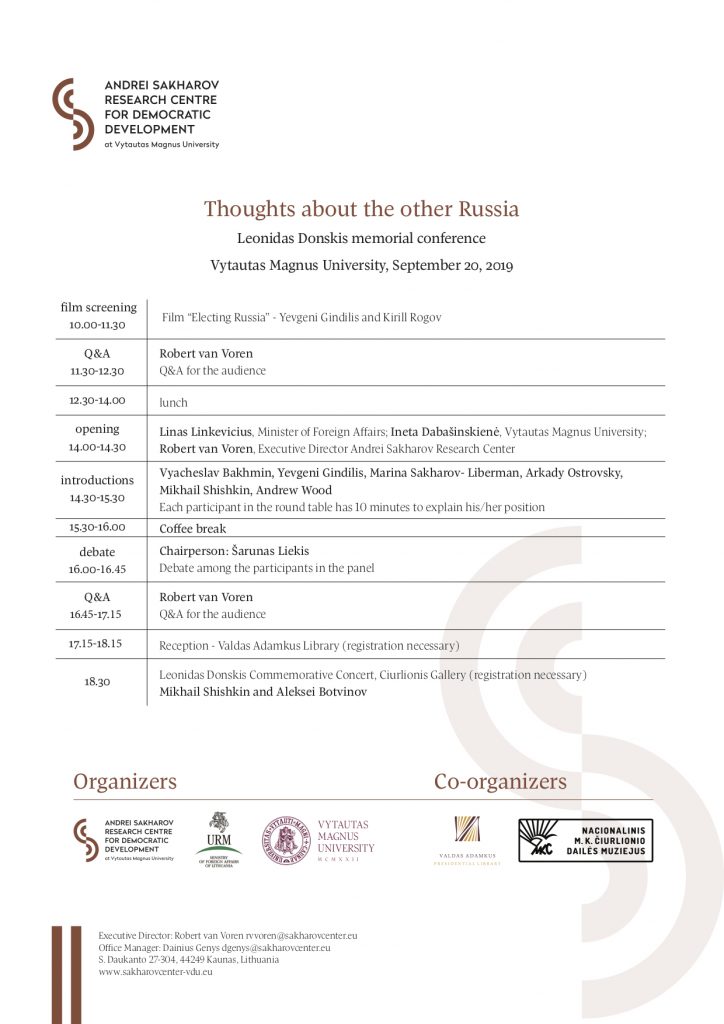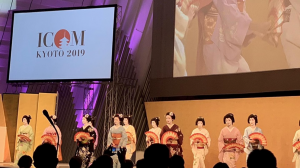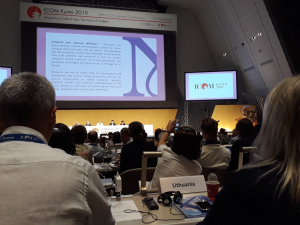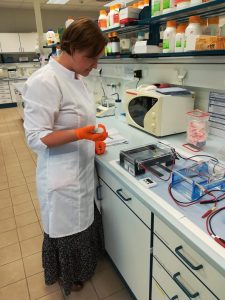Researchers Erasmus visit at University of East Sarajevo
Assoc. prof. dr. Anastasija Novikova from the Research Institute for Bioeconomy and assoc. prof. dr. Daiva Šileikienė from the Institute of Environment and Ecology visited the University of East Sarajevo during the 30 of September – 4 of October. They met the main representatives from the International Department and Faculty of Agriculture. Researchers shared their experience in preparation of research projects and discussed the possibilities of future scientific collaboration during the meetings. Assoc. prof. dr. Anastasija Novikova and assoc. prof. dr. Daiva Šileikienė visited the main laboratories of the Faculty of Agriculture on soil, water quality research, which works with different analysis methods. We also were acquainted with the new laboratory equipment received by the Science Foundation of Bosnia and Herzegovina. There was possibilities to the visit and stay at the Faculty of Agriculture of University of East Sarajevo will serve as the continuation of cooperation between the faculties of the host and home universities.
Visit to Slovakian Agriculture University in Nitra
Prof. Astrida Miceikienė from the Research Institute for Bioeconomy (Faculty of Bioeconomy development) visited Slovakian agriculture university in Nitra on 30/09/2019 – 04/10/2019. She came to this University for teaching visit and participated in the celebration of 60th anniversary of the foundation of the Faculty of Economic and Management. This events attended 480 guests from 16 countries, 30 partner faculties and university and 27 business partners http://www.fem.uniag.sk/en/news-reader/items/celebration-of-the-60th-anniversary-of-the-foundation-of-the-fem-sua-nitra/
Astrida Miceikienė taught master students on the topics of tax and taxation of Lithuania and EU. During the visit the professor met with the researchers from the Faculty of Economics and Management, guests of the Faculty and discussed opportunities for cooperation. She presented study programs of the Faculty of Bioeconomy development and the possibilities for exchanges studies at Vytautas Magnus University Agriculture Academy. During the stay at the Faculty the possible cooperation in research, the inter-university cooperation within the framework of the Erasmus + program establish and strengthen the scientific cooperation were discussed with Dean of the Faculty prof. Elena Horska. Astrida Miceikiene was presented research fields at Faculty of Bioeconomy development, projects and research journals.
Training visit to Czech University of Life Sciences Prague and attendance in the international conference
In September 16-20, 2019 professors PhD Algirdas Jasinskas (Vytautas Magnus University, Agriculture Academy, Faculty of Agricultural Engineering) and Kęstutis Romaneckas (Vytautas Magnus University, Agriculture Academy, Faculty of Agronomy) visited Czech University of Life Sciences Prague according to the programme ERASMUS+ training.
The main objectives of visit were the increase of professional skills in scientific analytical and study spheres through technological-technical and environmental evaluation of technologies and analysis of new methods of soil remediation and mitigation of erosion. Besides, principles of Precision agriculture and methods of fields censoring will take part in this training visit. Also to attend international scientific conference with presentations: TAE 2019 – 7th International Conference On Trends In Agricultural Engineering; to grow up the relations with scientists and teachers in Czech Republic for future collective scientific and study projects development; to increase skills in English during training visit.
In scientific conference professors presented two oral presentations. Two articles were published in materials of conference (CA WOS Conference Proceedings). In free time, professors made sightseeing in wonderful places of Prague.
The following are a few photos of a visit to Czech University of Life Sciences and Technologies in Prague.
ERASMUS+ teaching visit in Institute of Agronomy and Veterinary Hassan II
Lecturer Otilija Miseckaite (Institute of the Water Resources Engineering, Faculty of Water and Land Management) with the support by Erasmus+ teaching programme visited Institute of Agronomy and Veterinary Hassan II, Rabat, Morocco. She presented the lectures and the possibilities for exchanges studies at Vytautas Magnus University Agriculture Academy. During the stay at the Institute the possible cooperation in research, the inter-university cooperation within the framework of the Erasmus + program establish and strengthen the scientific cooperation were discussed with Director Ali Hammani and Deputy Director of Partnership and Development Cooperation Sanaa Zebakb. .
The Hassan II Institute of Agronomy and Veterinary (IAV) is a multidisciplinary polytechnic center for biological and earth sciences and technologies. It uses an integrated approach to higher education, training, and scientific research to serve agricultural and rural development. IAV comprises six schools located on two campuses in Rabat and Agadir: agronomy, veterinary, agro-food industry, horticulture, topography, and rural engineering. It has more than 320 professors and researchers, 180 technical staff, several research laboratories, and a veterinary teaching hospital. IAV offers masters and doctoral training in engineering, veterinary, water resources management, ecosystem management, and horticulture, among other subject areas.
Otilija Miseckaite also attended the 5th Interregional CIGR conference on “Challenges of Water Mobilization and Soil Conservation on Better Adapting to Climate Change” held on 10-13th September 2019, and joined session at 2nd conference of the Pan Afarican Society of Agricultural Engineering on the topic “Role of Agricultural Engineering in Meeting the Challenge of Global Food Security”.
Events
Visit to the General ICOM Conference “ICOM Kyoto 2019: Museums as Cultural Hubs: the Future of Tradition“
The Head of Vytautas Magnus University Agriculture Academy Museum and Bioeconomy Development Faculty of Business and Rural Development Research Institute Lecturer Dr. Rasa Pranskūnienė was awarded the Lithuanian Council for Culture Education Grant and has visited the General ICOM Conference “ICOM Kyoto 2019: Museums as Cultural Hubs: the Future of Tradition“ and has made the oral presentation „Back to the future of museum education“.
The ICOM (International Council of Museums) General Conference, held every three years, provides an important opportunity for ICOM members to share experiences, future prospects, and advance expertise and leadership in the field of cultural heritage and museums. In 2019, this event was hosted in a city famous for its cultural traditions: Kyoto, Japan. The theme of ICOM Kyoto 2019 General Conference was “Museums as Cultural Hubs: The Future of Tradition.” In recent years, museums around the world have begun to think more seriously about how better to contribute to society. Amidst the many global political, economic, and social changes taking place around the world, and with the underlying issues of climate change, poverty, conflict, natural disasters, human rights, and the environment, it is becoming more and more urgent for museums to consider how they might contribute to building a peaceful and sustainable future. More than 4500 participants from 120 countries and regions gathered in Kyoto to discuss and exchange ideas and experiences.
Training visit to Wageningen University & Reasearch
On 26-30 August 2019, lect. Asta Bendoraitytė from Research Institute for Bioeconomy (Faculty of Bioeconomy Development) visited Wageningen University & Reasearch as Erasmus+ training visit.
During the visit, A. Bendoraitytė participated in the summer school “Risk Analysis and Risk Management in Agriculture: Updates on Modelling and Applications” (3 ECTS) organized by Wageningen School of Social Sciences (WASS). During the training, the theories concerning risk analysis and risk coping strategies were analysed and proficiency with software tools was developed. Course covered both conceptual and methodological issues of the risk management. Multiple trends in agricultural risks were discussed and included topics related with the need to cope with risk in agriculture and uncertainty&risks; price and production risk, including price dynamics and price volatility; asymmetric information and moral hazard; risk coping strategies (including both – in-farm and off-farm strategies). Courses were presented by prof. Miranda Meuwissen (WUR), assist prof. Yann de Mey and assist prof. Fabio Santeramo. During the practical sessions, econometric models and stochastic simulations were used to measure risk and evaluate the possibility to use various risk coping tools.
Students, teachers and representatives from agriculture sector from more than 10 different countries participated in the training course. They all shared their experience dealing with risk in agriculture, outgoing research and agreed to meet in future conferences and showed interest for future collaboration.
Training visit to RHIZO-MIC UG in Germany by Erasmus+ program
Nijolė Maršalkienė researcher of the Institute of Ecology and Environment, had been to RHIZO-MIC UG enterprise in Germany for training visit by Erasmus program. A training visit was organised from 01 to 07 July 2018.
The aim of training visit at RHIZO-MIC UG was focused on learning about the practical aspects of production, formulation and application of microbial products containing beneficial microorganisms in agriculture and using as soil improvers, bio-fertilizers, biostimulants, plant protection agents, having positive effects on plant production and helping plants to with-stand biotic and abiotic stress situations.
During the training session, the Institute of Biosciences in Bernburg (Anhalt University of Applied Science) visited also, with aim to get the experience and knowledge in the field of antagonistic activities of endophytic bacteria on pathogenic fungi, evaluating bioactive secondary metabolites from endophytic microorganisms for cosmetic, pharmacological and agricultural applications.
The visit in laboratories and training on fungal DNA isolation, PCR, gel electrophoresis and sequencing was done.
Nijolė Maršalkienė had an opportunity to present the research of the Institute of Ecology and Environment done in the field of beneficial microorganisms for agriculture application and discussed about the future cooperation.
Secondment to Latvia University of Life Sciences and Technologies
In May 1-3, associate professor of the Department of Agriculture and Food Sciences Jurgita Kulaitienė, lecturer Nijole Vaitkevičienė and Dovilė Levickienė, pHd students Dalė Televičiūtė and Aloyzas Velička from Vytautas Magnus University (VDU) Agriculture Academy, Faculty of Agronomy, visited Latvia University of Life Sciences and Technologies.
During the visit the International Baltic Conference “FoodBalt 2019 and NEEFood 2019” was attended. The aim of the Conference: to bring together scientists interested in food, quality and innovation in this area. It was possible to meet with scientists from different countries (Turkey, Portugal, Russia, Estonia, etc.) and to discuss various issues about food science opportunities, visions, and carried out studies. It was also a unique event in which leading food scientists and young scientists such as doctoral students or MSc students was able to exchange the latest research results in their areas of the research, and acquire additional knowledge in other research areas.
In the conference we presented 2 posters (The changes of bioactive compounds in different genotypes of rosehips flesh; Total phenols, phenolic acids and flavonoids content of different mint species) and one oral presentation (The effect of plant extracts on the synthesis of biologically active compounds in germinated leguminous). An award for the best oral presentation was given to PhD student – Dalė Televičiūtė.
ERASMUS Studies
Dear students
Please not forget about possibilities of ERASMUS studies in other European countries !
That is the possibility to study in other European university and get the ERASMUS grant.
Required information and application for ERASMUS studies abroad.
Final meeting on information and distribution of places will take place on 02 April 2019 (Tuesday) at 14:30– Central building of VMU-AA Room 506.
Regards
Assoc. prof. dr. Raimundas Rukuiza
VMU-AA ERASMUS coordinator
- About
- About Agri-Food BM programme
- Academic infrastructure units
- All events
- All news
- Aquaculture center
- Archives
- Biosystems Engineering
- Center of Animal husbandry selections, breeding values and dissemination
- Centre of Biosystems Engineering, Biomass Energetics and Water Engineering
- Circular Biobased Economy
- Climate change
- Contacts
- Contacts
- Events
- Events archive
- Faculties
- For business and society
- Innovative products
- International Cooperation
- International projects
- Joint Research Centre of Agriculture and Forestry
- Journal “Human and Nature Safety”
- Laboratory of Technology Safety
- Laboratory services
- Living Environment
- More labs
- News
- Project
- QUALS project description
- Research
- Research areas
- Scientific events
- Scope
- Sitemap
- Studies
- Study programmes
- Technology Transfer & Commercialization
- THE ROLE OF ORGANISATION IN THE PROJECT
- THE ROLE OF ORGANISATION IN THE PROJECT
- THE ROLE OF ORGANISATION IN THE PROJECT
- The Study Process
- Žemės ūkio žinių ir inovacijų sistemos klasteris












